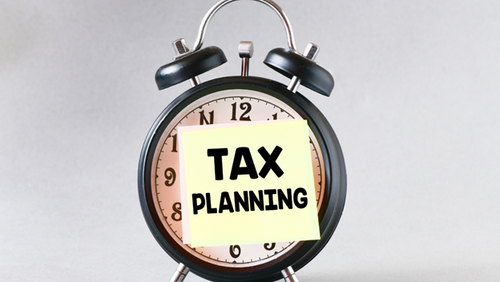How Much Is The Minimum Wage In Virginia: What You Need to Know

Table of Contents
Introduction
How Much Is The Minimum Wage In Virginia, known for its rich history and diverse culture, is a state that continuously evolves to meet the needs of its residents. Among the many considerations that impact the lives of Virginians, the minimum wage is a critical one. It directly affects the livelihoods of workers across the state and plays a pivotal role in shaping the economy. In this comprehensive guide, we will delve into the intricacies of Virginia’s minimum wage, exploring its history, recent changes, and how it compares to the federal minimum wage.
The Historical Perspective
Understanding the minimum wage in Virginia requires a historical perspective. Throughout the 20th century, Virginia’s approach to setting the minimum wage was often in alignment with the federal minimum wage. We’ll explore the origins of the minimum wage and its gradual increase over the years.
The Federal Minimum Wage
How Much Is The Minimum Wage In Virginia, it’s important to grasp the federal context. The federal minimum wage serves as a baseline for states to build upon. We’ll discuss the federal minimum wage, its recent changes, and how it impacts Virginia.
Virginia’s Minimum Wage: The Old and the New
How Much Is The Minimum Wage In Virginia has undergone significant changes in recent years. We’ll discuss the state’s previous minimum wage, the legislation that led to its increase, and what the new minimum wage looks like.
The Path to $15: Virginia’s Minimum Wage Increase
One of the most substantial developments in Virginia’s labor landscape is the move towards a $15 minimum wage. We’ll explore the timeline for reaching this goal and the implications for workers and businesses alike.
Exemptions and Special Categories
Not all workers in Virginia are subject to the same minimum wage rates. We’ll discuss exemptions and special categories, such as tipped employees and minors, shedding light on how these variations impact the minimum wage.
Regional Disparities: Northern Virginia vs. the Rest of the State
Virginia is a diverse state with varying costs of living in different regions. We’ll examine how the minimum wage in Northern Virginia differs from the rest of the state, and the reasons behind these disparities.
The Impact on Small Businesses

Minimum wage increases can have a substantial impact on small businesses. We’ll explore the challenges faced by Virginia’s small business owners and strategies they employ to adapt to higher labor costs.
The Economic Effects
Beyond its immediate impact on workers and businesses, changes in the minimum wage can have broader economic implications. We’ll discuss the potential effects on employment, inflation, and the overall economy.
Enforcement and Workers’ Rights
Ensuring that workers receive the minimum wage they are entitled to is a crucial aspect of labor law. We’ll explore how Virginia enforces minimum wage laws and the rights of workers in the state.
Advocacy and Future Outlook
Advocacy for fair wages continues to shape the minimum wage landscape in Virginia. We’ll look at the role of labor unions, advocacy groups, and legislative initiatives in shaping the future of the minimum wage in the state.
Comparing Virginia to Neighboring States
Virginia doesn’t exist in isolation, and neighboring states often have different minimum wage laws. We’ll compare Virginia’s minimum wage to that of its neighboring states, highlighting the regional context.
Tips for Navigating Virginia’s Minimum Wage
For workers and employers alike, understanding and navigating minimum wage laws is crucial. We’ll provide practical tips and resources for individuals and businesses to ensure compliance and fairness.
Conclusion: A Shifting Landscape
How Much Is The Minimum Wage In Virginia, reflecting the evolving needs and aspirations of its residents. As we’ve explored in this article, the path to a $15 minimum wage is a transformative journey that impacts workers, businesses, and the broader economy. By understanding the historical context, regional disparities, and the economic effects, Virginians can navigate these changes with greater clarity and confidence.
In the end, the minimum wage in Virginia is not just about numbers; it’s about the livelihoods of the people who call the state home. As Virginia continues to adapt to new challenges and opportunities, its minimum wage will remain a vital component of the social and economic fabric.

 Navigating Cross-Border Investment Management for Canada-U.S. Dual Citizens
Navigating Cross-Border Investment Management for Canada-U.S. Dual Citizens  GIA vs IGI: Understanding the Differences in Diamond Grading
GIA vs IGI: Understanding the Differences in Diamond Grading  Breaking the Stigma: Why Small Business Loans are a Smart Investment, Not a Debt Sentence
Breaking the Stigma: Why Small Business Loans are a Smart Investment, Not a Debt Sentence  Lab Diamonds Demystified: Understanding the 4Cs for Smart Shopping
Lab Diamonds Demystified: Understanding the 4Cs for Smart Shopping  What is VAT MOSS?
What is VAT MOSS?  Getting Top Dollar: Strategies for Selling Your Diamond Ring in Sydney
Getting Top Dollar: Strategies for Selling Your Diamond Ring in Sydney  Perth Lawyers: Your Guide to Legal Services in Western Australia
Perth Lawyers: Your Guide to Legal Services in Western Australia  Quick Divorce Services in Hanoi: Your Comprehensive Guide
Quick Divorce Services in Hanoi: Your Comprehensive Guide